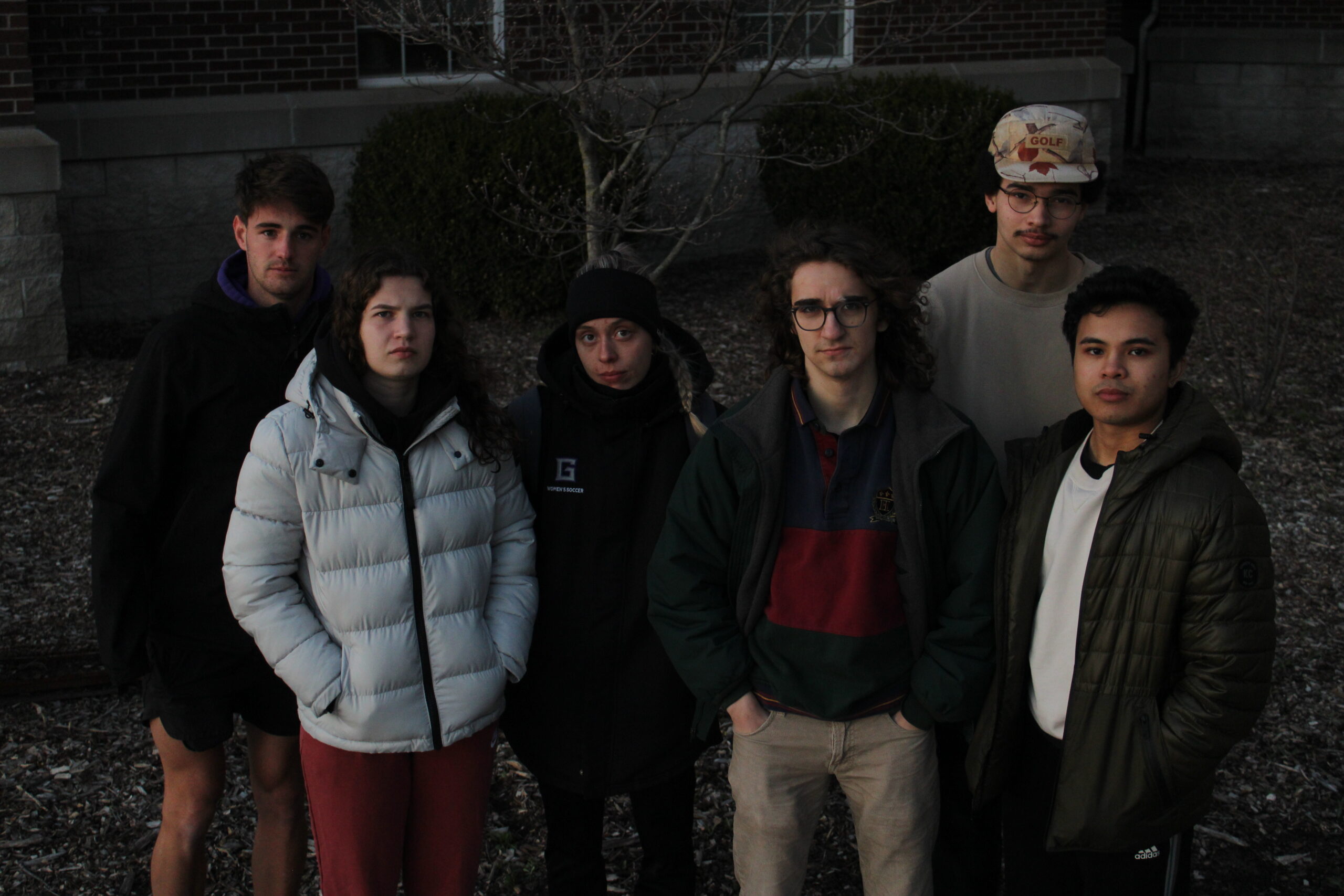The number of students who were initially waitlisted for housing increased by over 42% compared to last year.
The application opened for students who graduated from high school in 2021 or before — classified as seniors by residence life — on March 4. The application opened for 2022 high school graduates on March 7.In the weeks following, students received emails from Chandler Buchfeller, director of residence life and housing, about whether their applications got them into the apartments for the 2024-25 school year.
Some received their first choice, while others were glad to secure an apartment — even if it wasn’t the one they hoped for.
Many, though, received news they were dreading in an email from Buchfeller: “The apartments in Romero have each now been officially assigned to an applicant group and your group did not secure a placement.”
Last year there were 33 students who were initially waitlisted from the student apartments; that number rose to 47 this year.
The system that residence life uses for placements is a first-come, first-served system based on when applications are submitted — with some caveats.
For example, if a junior group applied early in the time designated for the senior groups, the application wouldn’t have been read until March 7. Also, if a senior group applied with a group one person under the capacity of their chosen room, they would be placed before a group of juniors at full capacity.
“We try to build a system that is fair and quick,” Buchfeller said. “I don’t want this to drag on any longer than it has to for students.”
For the apartment application this year, there was a higher demand for space than there has been in years past — due in large part to no applicants for the houses available as Intentional Living Communities. In anticipation of the demand, the ILC application has remained open until the houses are claimed by larger groups.
After the apartment application closed, at least two ILCs have already been filled by students initially rejected from the apartments.
Kate Bodiker, a communication and writing double major and a rising junior, is in Ecuador on SST this semester and was denied an apartment.
“It was very stressful to have to worry about housing while living abroad,” Bodiker said. “There are already so many other things to be thinking about, and I don’t currently feel super in touch with campus life.”
After her group received news that they had to find another housing option, Bodiker was able to join a group that secured housing in East Hall.
“We got really lucky with being able to find another place so quickly,” Bodiker said.
Some students, however, have not been as lucky.
Rising seniors who applied with rising juniors in their group were classified as junior groups. Fatima Zahara, a rising senior music and theater double major, was one whose application was rejected.
Zahara applied with three other people for a four-person apartment; one member of the group was a junior, affecting the group’s seniority status.
“I am definitely hurt by the whole thing,” Zahara said. “I don’t have the choice to live off campus [with family], so it hurts that there are people who live locally who got an apartment over me, or that our application wasn’t considered based on its quality.”
Their group doesn’t yet know where they’re going to live in the fall. “I would rather live in the apartments with people I maybe don’t know,” Zahara said.
That is a possibility: The options that remain for students who did not secure an apartment in their chosen group are living in Yoder, Kratz or Kulp, or submitting a single Romero application to fill the remaining beds in Romero — part of Buchfeller’s goal to make sure that as many people as possible will be in the apartments.
For students who apply to Romero on their own, the system remains first come, first served, with the caveat that seniors have priority. If a student is offered a space but fails to accept within 24 hours, that space is offered to the next person in line.
Some of the spaces that are available in the apartments aren’t exactly ideal. Sadie Brenneman, a rising senior journalism major, shared about Vicky Naylor, another rising senior, who was added to her apartment after Naylor was initially denied a space. “Vicky will be in the extra bed,” Brenneman said. The apartment only has “two bedrooms and a loft. She doesn’t have a door on her room.”
Naylor said that it’s not ideal, but that “I’d rather live there than Kulp.” Buchfeller has previously described Kulp Hall to The Record as “over a hundred years old … [which] creates some interesting realities.”
Students held protests last year over the housing issue, and with the frustrations being raised anew, Buchfeller said that “our system is not perfect. We’re trying to make it better every year.”
For the housing process this year, there were changes that eased the process. The housing deposit for ILCs and Romero decreased from $200 to $75. “It’s a lot easier to have $75 on hand than $200 for some students,” Buchfeller said. Because of this, deposits were not a limiting factor for whether students got apartments this year.
Additionally, staff worked to increase communication with a housing information night and through the Campus Communicator.
Even so, communication fell flat for some students. Homies 4 Housing, a student advocacy group last year, had been told by residence life that a shortage of available apartment space was “no longer a pressing concern due to the current student population.”
Whether students were accepted or denied, they shared similar sentiments: “Every day I hear of people who don’t have apartments, and I feel really bad for them,” Brenneman said.
Zahara added, “I don’t think keeping us tied to a meal plan and a dormitory is a good way to transition us out of college.”
For the future, change is still possible. “We’re always interested in hearing from students,” Buchfeller said. “Things don’t have to be done this way … These rules aren’t written in stone. We can change them for the next housing process that cannot be changed during an active process.”
This article was updated March 26 to correct a mathematical error in the first sentence. 33 students waitlisted to 47 is an increase of 42.4%, not 47%.



